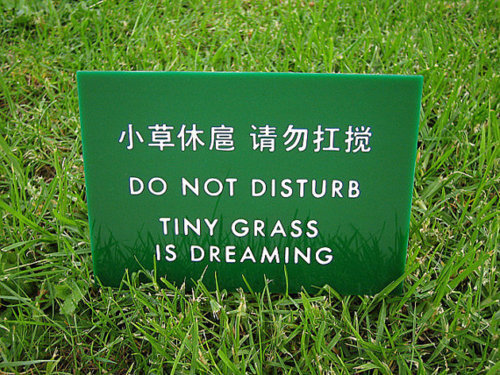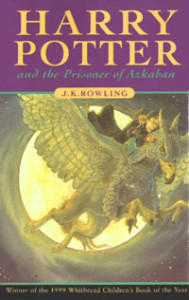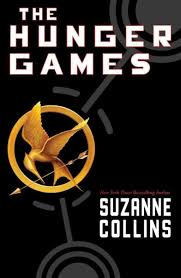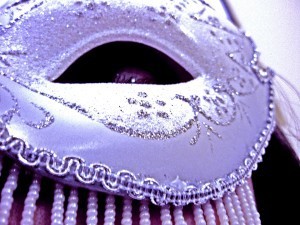Kate Larking's Blog: Anxiety Ink, page 80
September 5, 2013
Feminism in Literature I: Making Your Writing Better by Incorporating Feminism
I did not think that writing my first post on feminism in literature would be as hard as I’m finding it. I just spent over a year working on a writing project incorporating feminism for crying out loud! But it’s hard. And it’s subjective. However –I think I’ve found a good starting place.
If you’re afraid of the F word you should probably stop reading this post, if you haven’t already. On the other hand, if you believe that women are human beings that deserve equal rights and the same consideration and control over their lives as men, please read on.
I think Feminism is so much more than politics. And, despite its major misconception, it isn’t about man-hating. Feminism is a way of life –a tough one– and it’s a really bumpy road, even in 2013.
Right now, it seems that women are the hot topic in literature, movies, and the media no matter where you’re living in the world. Don’t get me wrong, I love it, women deserve the spotlight, but it’s not enough to have women as elements on the page or screen. Those elements need to mean something. And they need to be presented correctly and thoughtfully. No, I’m not about to spout Miss Representation information at you, although it’s quite valid. I’m going to go down another avenue, one I feel a bit more qualified to travel as a great consumer of female stories.
Have you ever really thought about the kick ass fictional women you hear about? I’m not talking looks or love triangles, I’m thinking more along the lines of skills and personality. They’re usually tough right? I mean, that’s kind of a prerequisite to being kick ass. But are they interesting on a basic human level? Are they smart? Inquisitive? Adept? Funny? Witty? Quirky? Do they solve their own problems? Or is luck always on their side?
A lot of women I can think of fall into a few of those categories but there isn’t a lot of crossover. And I find that very annoying. Women, even fictional ones, are multidimensional creatures. Most are funny. Most have a sense of humour. All are smart. Most are inquisitive. And most are adept, you kind of have to be when the odds are against you and our society makes you work twice as hard. And I don’t know about anyone else, but luck is not my best pal, I’m usually working my butt off instead of relying on chance.
So, where does that leave us? Hopefully wondering why feminism needs to be incorporated into all writing. And how.
Going back to our broad little definition above, it’s about realizing that women are human beings, which means they should crossover into multiple categories. Take Rowling’s Hermione for instance, she’s smart, adept, and thoughtful, amongst other things. She solves her own problems by working hard and being tenacious. She pushes back. Even though she never gets the credit at the end of the book. Not really, anyway. After all that her, Ron, and Harry have gone through I’d say she’s tough –but she’s also so much more than that.
Compare Hermione to Collins’s Katniss. I love The Hunger Games, but the more I think about Katniss, the louder the voice in my head says something just isn’t right. What are Katniss’s major personality traits? … Exactly. She’s the quiet type. She’s skilled at hunting with that bow of hers. She understands the rules of the world she lives in and she knows how to work below detection –but Gail, an older boy, taught her most of these skills (at least the ones her father didn’t). She does stand up for herself against Haymitch, President Snow, and most of the freaks in the Capitol, eventually. And she’s honourable. I do recall that. But, for the most part, she still acts in a passive aggressive way while doing so. A lot happens to Katniss, which causes her to react. That’s what stands out for me.
Alas, this is the curse of the English major –over analyzing the books you love. But it must be done.
I hope my point is starting to come across. In a nutshell, it’s like this:
 http://www.arcamax.com/thefunnies/rugrats/s-1376981
http://www.arcamax.com/thefunnies/rugrats/s-1376981
I want people. I want women. I don’t want types. And I hope you feel the same way.
So, writers, it’s homework time. If you want your work to stand out, be multidimensional, be riveting, and have a wider readership, you need to incorporate women who aren’t cardboard cut-outs. They need to do stuff for themselves, i.e. act upon motivation. And they need to have personality. Skills. And a backbone. Those are just the basics.
Good luck! I know you’re more than capable.
This post was inspired by (thanks Kate):
http://www.newstatesman.com/culture/2013/08/i-hate-strong-female-characters
http://insidemovies.ew.com/2013/08/22/joss-whedon-empire-strikes-back-twilight/
If you’re interested in any of the ideas expressed here and want to go on to learn more, here are some good places to start:
http://www.gender-focus.com/
http://fafia-afai.org/
http://www.missrepresentation.org/
http://feministing.com/
http://www.msmagazine.com/
http://bitchmagazine.org/
Or, if you like, contact Anxiety Ink and some awesome book titles can be sent your way.
September 4, 2013
Introversion and the Writer
There are a lot of writers in this world. Some are casual writers, some are dedicated writers, some are professional writers.
And writers tend to fall into two separate categories: Introverted and Extroverted. The simple definitions are that introverts gain energy when they are in a calm, quiet atmosphere to recharge themselves while extroverts gain energy when with people and thrive off conversation.

Source: http://languagelog.ldc.upenn.edu/nll/...
In high school (oh yeah, I went there) you could see the extroverts jovially colluding in the hallways. The introverts sought sanctuary in libraries and computers-based interactions
Is this binary always the case? No. “Introverts, in contrast, may have strong social skills and enjoy parties and business meetings, but after a while wish they were home in their pajamas. They prefer to devote their social energies to close friends, colleagues, and family. They listen more than they talk, think before they speak, and often feel as if they express themselves better in writing than in conversation. They tend to dislike conflict. Many have a horror of small talk, but enjoy deep discussions”(Quiet by Susan Cain).
However, being brought up this way definitely has an impact on introverts. We find ourselves thinking that there is something wrong with us because we aren’t constantly outgoing, constantly engaged socially. The reality is, though, there is nothing wrong with introversion, only the perception of introversion.
For the introverted writer, there can be more confidence in the writing produced. Due to introverts living within themselves, there is a stronger inner life to draw from. There is the ability to be solitary in our time and not feel lonely or bored.
We do have friendships. A lot, these days, are online. They can be forged offline and brought online, or forged entirely offline, meeting in places where writers or even fandoms gather.
We gather on our own terms, and work on our own terms. We have peace within ourselves that we need to come to terms with amidst an extrovert-driven business world, where we are often employed.
Be empowered with the fact that you are your greatest pillar of support. I leave you with two quotes that really encompass the need to overcome the pressures of society:
“Isn’t it refreshing to know that what comes perfectly natural for you is your greatest strength? Your power is in your nature. You may not think it’s a big deal that you can spend hours immersed in something that interests you—alone—but the extrovert next door has no idea how you do it.” - Laurie Helgoe
“Accept everything about yourself–I mean everything, You are you and that is the beginning and the end–no apologies, no regrets.” – Clark Moustakas
September 1, 2013
Writing Across Media
The mechanics of good storytelling don’t change. You have your conflict, plot twists, and character arcs. But I have found that for me, at least, different venues require different approaches.
When composing a story, I prefer to write longhand with pen and paper, often in cursive. I am a slow writer. I type faster than I can compose. So rather than type, get ahead of myself, and have to redo most everything after losing my way in the story, I write my drafts longhand to save me time, hassle, and headache in the long run.
But when composing a blog entry, I prefer to draft on the computer. I don’t have to think about it as much, for one, but for another, putting it on a screen initially allows me to see it – which paragraphs are too long, which bunny-trail topics are useful or not, etc. If I wrote that out on paper, it would be missing that context.
Because, let’s face it, we have a finite attention span for anything on a screen. The aesthetic of it is almost as important as what the words actually say.
I also sometimes write for a podcast. I write those pieces of flash fiction with the knowledge that I will record myself reading it aloud. This is where my high school theater background kicks in. I write for how it will sound and how well I can take on its character. I find that I leave in things I would consider weaker writing – slang, repeated words or phases – because they feel more believable in-character. I am allowed the added dimension of my voice, where I can repeat the phrase, “I don’t know,” half a dozen times and give it half a dozen different meanings.
Please weigh in below on other writing venues (like theater, film, comics, etc!) and any way you see your own writing styles or foci change from one to another. Let’s get a discussion going in the comments!
Anxiety Ink
- Kate Larking's profile
- 53 followers






